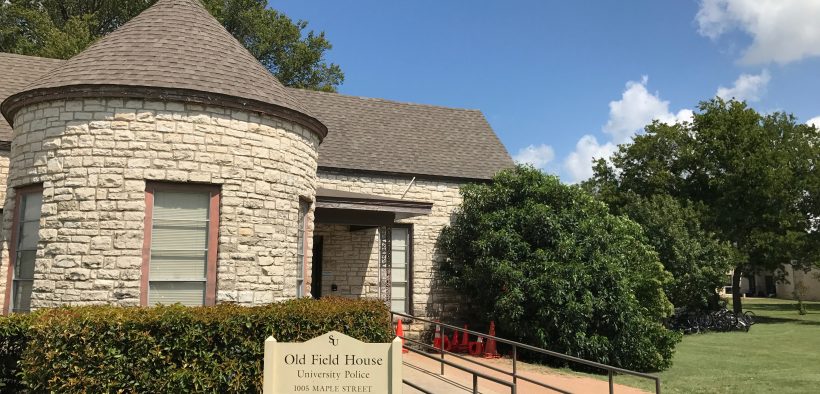Chief Dunn, Dean Story Respond to Bias-Related Incident
Share

Co-written by Sam Russek
Our recently published article regarding the bias-related incident on Oct.1 sparked discussion among the Southwestern community. It was noticeably apparent that the administration and police department were absent in the article. Because of this, we decided to reach out to Dean of Students Shelly Story and Police Chief Brad Dunn in order to glean a better picture of the situation.
Since the article was published, some in the SU community were confused as to why the administration chose to use “bias-related incident” rather than “hate crime,” and felt that the administration, in using the term, was attempting to minimize the issue. The Megaphone has also documented mentions of “hate crime” in the Student Handbook, and how it doesn’t mention “bias-related incidents” at all.
However, Dean Story explained, “We used the phrase ‘bias-related incident’ specifically to indicate that the behavior in question exhibited bias. This type of behavior is abhorrent, unacceptable, and a violation of our community standards, [no matter] whether it falls under the definition of ‘hate crime’ or ‘bias-related incident.’ In this case, the use of the term ‘bias-related incident’ was a matter of factual accuracy.” She linked us to the legal definition of the term “hate crime” on the FBI website.
In addition to the confusion on the difference of terms, the SU community has also expressed distrust in the administration, especially when students feel they have so little information provided to them on the actions and consequences taken since the incidence occurred, but Dean Story clarified: “I can understand why a student might think that if their expectation is that details of violations of our community standards, and consequences to those who violate the standards, should be shared with the entire community,” Story says. But, as she put it, “The Federal Educational Rights and Privacy Act protects the privacy of all students, including those accused of even the most serious violations. We cannot violate those rights, even when many in the community would like to know exactly what happened or the outcome of a disciplinary process. ‘Hiding’ implies that there are people who have a right to the information, and that right is being denied. That is not the case.”
Chief Dunn added, “The administration, including SUPD, are governed by laws that restrict our ability to release specific information,” said Chief Dunn. “Privacy of individuals involved as well the integrity of investigations must be protected.”
When asked why she thought there are certain misgivings between the student body and the administration, Story stated, “I think mistrust comes from lack of familiarity and lack of understanding, and sometimes also from making assumptions based on a limited point of view or based on rumor. I personally find it very discouraging that on our campus, not only do rumors frequently cause real harm to individuals, but there is an attitude of resignation around the rumor culture as if it is out of our control.”
Whereas Story and Dunn were both unable to explicitly address the current stage in the bias-related incident investigation, they were allowed to explain the general process of a given bias-related incident case.
“A bias-related incident is evaluated by the Dean of Students and myself, as the chief administrator of the police department,” said Chief Dunn. “If, during this process, it is discovered that a criminal act occurred, with or without evidence of bias, then a criminal investigation will ensue as well as an investigation through the Dean of Students. If no evidence of a crime is discovered, then the matter would be solely investigated by the Dean of Students as a bias-related incident.”
There is often a disconnect between student-held anxieties and the overall approach the administration takes to dealing with sensitive situations. When asked how we might be able to bridge the gap between student fears and administrative procedures, Chief Dunn replied, “I would simply suggest that students reach out by taking advantage of the many opportunities to engage the administration. Take what facts are available and come to educated conclusions. Try not to make assumptions based on rumor.”
“Most of us are highly accessible for appointments, serve on committees with open meetings, advise a student group or two, and attend events around campus,” Story said, and then encouraged students to follow this four-step exercise on their own:
- Consider the source of any information that causes mistrust,
- Ask where and how additional information might be accessible,
- Ask who exactly you mean by “the administration,” and finally,
- Take steps to get to know those people so you can judge for yourself.
“Southwestern is a microcosm of the country and culture,” Story said. “We [are] not immune from the conflicts of our time, nor the history in which they are rooted. Yes, we do see behaviors that are, or in some cases seem to be, directed at people because of their identities. Often, the actors are unknown.” In this case, the actors are known, the incident was properly reported, and the administrative process is underway. Students are free to contact Shelley Story and Chief Dunn with questions, comments or concerns.
